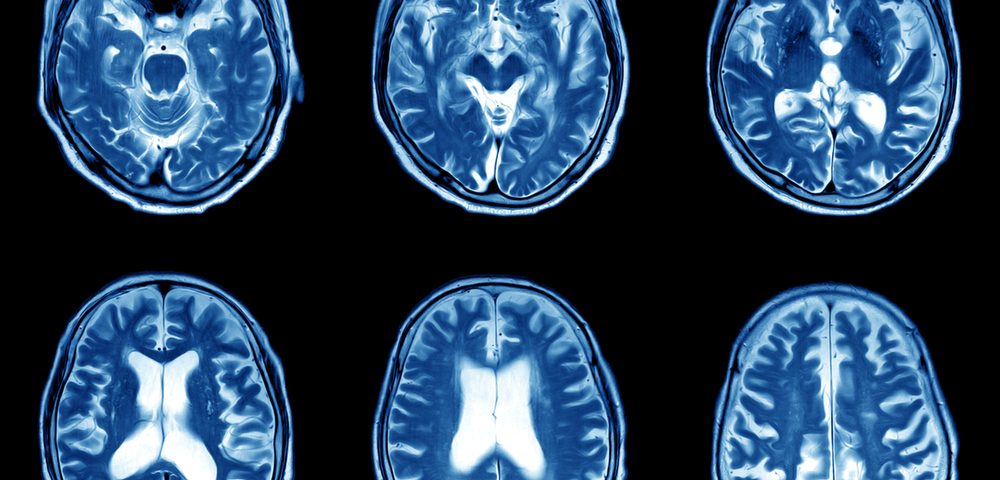PPMS Patients ‘Drove’ Slowing in Brain Atrophy Seen With Ibudilast, Trial Analysis Finds
Written by |

People with primary progressive MS (PPMS) appeared to show a much stronger response and to be the” driving” force behind a slowing in brain atrophy seen with ibudilast treatment in the SPRINT‐MS trial, a post-hoc study analysis reports.
The treatment response observed in brain atrophy was more evident among PPMS patients than those with secondary progressive MS (SPMS), its researchers reported, possibly due to the new finding that untreated PPMS patients had a “significantly higher rate of atrophy” than did untreated SPMS patients over one year in the trial.
The analysis, “Response to ibudilast treatment according to progressive multiple sclerosis disease phenotype,” was published in the Annals of Clinical and Translational Neurology.
PPMS and SPMS are disease subtypes grouped under the umbrella of “progressive MS.” However, the two disease forms have distinct development and progression, and can respond differently to treatment.
Ibudilast is being developed by MediciNova, under license from Kyorin Pharmaceutical, as a potential oral MS therapy. It has been approved in Japan to treat asthma and stroke since 1989.
Previous results from the SPRINT-MS Phase 2b clinical trial (NCT01982942) in progressive MS patients — 134 with PPMS and 121 with SPMS — showed significant overall reductions in the rate of brain atrophy progression in patients treated with ibudilast (up to 100 mg total each day) compared with those in both groups given a placebo for 96 weeks (about two years).
This post-trial analysis was undertaken to determine if this therapeutic benefit might differ between those treated PPMS and SPMS patients.
MRI and other imaging techniques were used to assess the rate of brain atrophy progression in the trial. PPMS patients enrolled were 42.54% female, with a mean age of 55.24 and a median disease duration of six years; 68 (50.75%) were assigned to oral ibudilast. SPMS patients were 65.29% female, with a mean age of 56.17 and a median disease duration of 16 years; 61 (50.41%) were treated with ibudilast.
At baseline or study’s start, PPMS patients showed a significantly faster performance on the 25-foot walk test (a mobility test), a lower MRI lesion volume, and thicker retinal nerve fiber layer (MS can induce the thinning of the retinal nerve fiber in the eye) relative to SPMS patients. These baseline differences were accounted for in the analysis.
At week 48, the post-hoc analysis found an interaction between the time, treatment effect, and disease type. The overall treatment effect on brain atrophy was mainly driven by PPMS patients, the researchers reported, as treatment with ibudilast significantly slowed overall brain atrophy in those with primary progressive disease compared with these placebo group patients, while no significant differences from placebo were seen in treated patients within the SPMS group.
Similarly, over the 96-week total study period, ibudilast lessened the decline in cortical thickness compared with placebo. Again, “the treatment effect appeared more pronounced in the PPMS group than in the SPMS group,” the researchers wrote.
After controlling for age and several secondary atrophy measures — namely MS lesion volume, retinal nerve fiber layer thickness, and white matter atrophy (measured by diffusion tensor imaging) — the responses to treatment were still driven by the PPMS group.
Interestingly, PPMS patients on a placebo showed a significantly faster rate of brain atrophy than did SPMS patients given a placebo over 48 weeks. This suggested that the significant change in overall brain atrophy rates observed across the treatment groups appears to arise from ibudilast slowing the accelerated brain atrophy associated with PPMS relative to SPMS.
“To our knowledge, the differential treatment effect on brain atrophy that we observed between SPMS and PPMS has not been described previously,” the researchers wrote, adding that the “overall treatment effect of ibudilast on worsening of brain atrophy in progressive MS appears to be driven by patients with PPMS that may be, in part, because of the faster atrophy progression rates.”
The team also noted that “the favorable effects observed on brain atrophy suggested a neuroprotective effect” for ibudilast in PPMS patients.
Further investigation into the findings of this “post hoc exploratory analysis” are need to confirm them. “If confirmed and found to be clinically relevant, these findings will need to be considered in future trial designs for progressive MS,” the researchers concluded.


